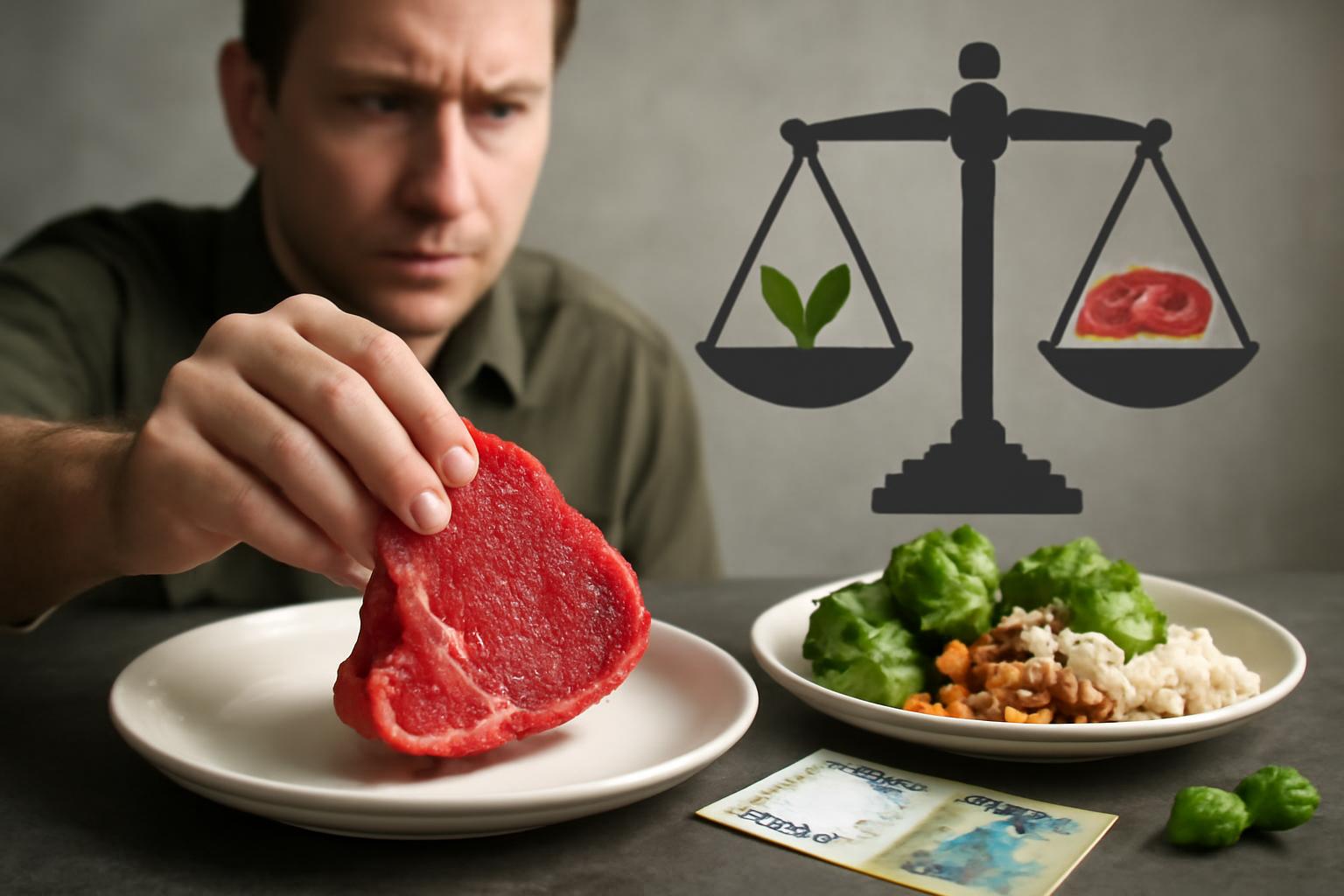In a recent report, Germany’s scientific advisory board on agricultural policy and nutrition draws urgent attention to the negative effects of excess meat consumption on both human health and climate change. They recommend not the abolition of animal agriculture, but rather a pragmatic expansion of consumer choice—emphasizing accessible plant-based and biotechnological alternatives such as cultured meat, oat milk, and the like. Notably, the board criticizes Germany’s current tax regime, which paradoxically favors animal products with lower VAT rates, while making more sustainable plant-based alternatives relatively expensive. They suggest tax reforms, the introduction of clear climate labeling on food, and expanded public education as steps toward a healthier and more ecologically sustainable food system. Additionally, they call for robust innovation and research to ensure Germany’s competitiveness in alternative protein industries, noting that alternatives currently occupy only a niche in the total market.
While I applaud this report’s commitment to evidence and its avoidance of draconian measures or outright bans, I cannot help but feel a deep concern about the persistent temptation to solve our collective problems through layers of government intervention. The board’s proposals—tax differentials, climate labels, and the encouragement of certain consumption patterns—amount to a technocratic reshaping of the food economy, substituting the dispersed knowledge and spontaneous order of the market for the deliberate orchestration of bureaucratic committees and commissions.
Are we to assume that politicians, informed by select panels of “experts,” are better equipped to direct the preferences and dietary habits of millions than free individuals acting in a market unburdened by distortionary regulation? I have always maintained—and this case is no exception—that knowledge is overwhelmingly dispersed among individuals. Every attempt by the state to “nudge” citizens toward supposedly preferable behaviors is fraught with the dangers of unintended consequences, bureaucratic inertia, and, all too often, paternalism cloaked in the language of “public health” or “climate protection.”
Certainly, consumers must have the freedom to choose from a rich variety of products, from traditional meats to plant-based novelties. But the primary driver of innovation and efficiency in this realm must be unhampered competition, not taxpayer-funded innovation programs or well-meaning nudges through tax policy. If plant-based and biotech foods are truly superior in terms of taste, price, nutrition, and environmental impact, the market—given truthful information and absence of unfair subsidies or taxes—will surely reflect this as people vote with their wallets.
Moreover, the call for a “less polarized debate” risks becoming a veiled attempt to marginalize dissent and to entrench a particular vision of the “good society” as determined by the current intellectual class. Let those who champion alternatives to meat put their products on the table and compete. Let those who wish to retain animal agriculture continue to do so. What we do not need is a technocratic “parliamentary commission” recommending a constant expansion of state involvement under the banner of sustainability.
To those who seek healthier and more sustainable diets, I say: promote your cause energetically in the marketplace of ideas and of products, and trust consumers to weigh their own risks, preferences, and aspirations. Genuine progress, whether in food, health, or the environment, will be fostered by liberty and openness, not by ever-deeper layers of expert-driven governance.
